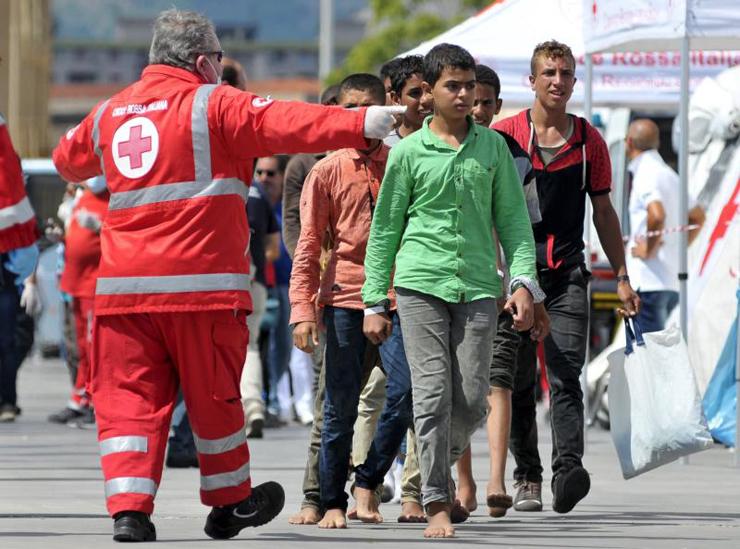ROME, July 3 (Xinhua) -- Italy, France and Germany have hammered out a plan of action to curb migrant arrivals, the Italian interior ministry said in a statement Monday.
Italian Interior Minister Marco Minniti came up with the plan along with his counterparts France's Gerard Collomb, Germany's Thomas de Maiziere, and European Commissioner for Migration Dimitris Avramopoulos at a meeting on Sunday in Paris, according to the statement.
Italy faces continuous arrivals of migrants fleeing war and famine in North Africa and the Middle East via unseaworthy boats run by human traffickers. Most of the vessels leave from Libya, with Italy as the nearest European landfall on the so-called Central Mediterranean route.
As part of the plan of action, Italy tried to draw up a "code of conduct" for non-governmental organizations, such as Doctors Without Borders (MSF) and Save the Children, who rescue people off traffickers' boats in the Mediterranean. The NGOs bring all the people they save to Italy, eschewing other countries which also face the Mediterranean -- a situation which is becoming unsustainable, the Italian government said last week.
On June 28, Italy made a formal request to the EU on asylum seekers, saying it might block foreign vessels carrying migrants to Italian ports unless partner countries also take in their fair share.
The plan of action drawn up by the interior ministers of Italy, France and Germany also calls for more training and funds for the Libyan Coast Guard, which is supposed to stop human traffickers from setting off in the first place, and for stopping asylum seekers from crossing into Libya via its southern borders.
It also calls for the UN Refugee Agency (UNHCR) and the International Organization for Migration (IOM) to make sure asylum seeker camps in Libya "meet international standards in terms of living conditions and human rights." Several NGOs have relayed reports from rescued asylum seekers of rape and torture at the hands of human traffickers in the Libya camps.
As well, the plan calls for stepping up the repatriations of people whose asylum claims are rejected, and for a "review of the policies on visas to third countries," according to the Italian interior ministry.
Lastly, the plan calls for the "full implementation and acceleration of the EU relocation scheme" of refugees from countries of first arrival to other EU countries.
Also on Monday, Italian Prime Minister Paolo Gentiloni warned the EU must "share the burden" of taking in the asylum seekers to "prevent the flows from becoming unsustainable and feeding hostile reactions within our social fabric." His remarks follow on the latest media reports of violence against asylum seekers or people perceived as such in Italy.
Last week, four Italian men aged 20-25 beat up an Italian citizen of Bengali origin, whose family was assigned a council flat in a working-class Rome neighborhood.
In the northern town of Vobarno at the weekend, unknowns set an empty hotel on fire after rumors spread that the government might use it to house asylum seekers.
By June 29, a total of 95,768 migrants and refugees had entered Europe by sea, with almost 85 percent arriving in Italy and the remainder going to Greece, Cyprus and Spain, the UN Migration Agency (IOM) reported on June 30. It's already a big drop compared with 230,230 arrivals in the same period last year, according to the IOM.




 A single purchase
A single purchase









